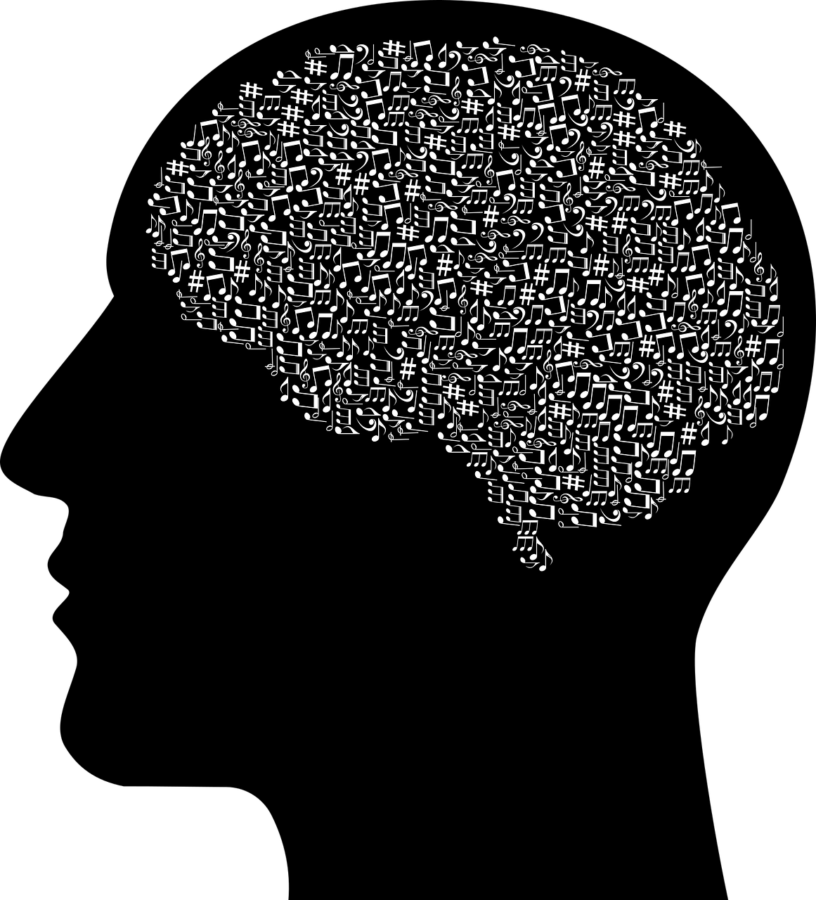Image by Gordon Johnson from Pixabay
When listening, music impacts the brain in more ways than one.
No Matter Rain or Shine: Music’s Influence on Mental Health
The origins of music are marked back to almost 35,000 years ago, and have evolved greatly since then. Music maintains a large influence over the world and continues to shape society today. Some don’t acknowledge how large of an impact music actually has; music has the ability to positively affect one’s mental health, enhance one’s mood, or even release negative tensions, such as anxiety.
Music and Emotions
Yes, your favorite song is likely played over and over again in your earbuds, at home, or with your friends. But have you ever acknowledged how the song has made you feel, or the boost in mood you feel while listening?
According to the University of Central Florida, music is able to trigger chemical reactions within the brain, and stimulate brain activity in certain areas as well. These chemical releases allow for a person to feel a variety of emotions, all depending on the music you prefer to listen to. Getting ready to go out, it’s likely that upbeat and cheery music will be on. However, going to sleep or studying might be a song of a slower pace or a more relaxing rhythm. Though we might not realize it, certain rhythms and beats within music are able to affect the entire mood, or “vibe” and make you feel some sort of way. After a long or stressful day, calm music is able to help a person settle their nerves and existing anxiety, as is a lighthearted song when you just have woken up on the wrong side of the bed.
In a study conducted by the British Academy of Sound Therapy, 90% of listeners claimed their music choices helped them better relax, while 82% of people noted that music allowed them to feel “greater levels of happiness”. In addition, 47% of people claimed music “helped them overcome sadness.”
The Science Behind It
Emotional responses from music can be accounted for in the nucleus accumbens, amygdala, and cerebellum sections of the brain. When actively listening to music, these sections respond in specific ways that allow for feelings and emotions to impact a listener. The nucleus accumbens, the section of the brain that “seeks pleasure and reward”, increases dopamine as a direct result of music. Music also affects the amygdala, the section of the brain that controls emotions and triggers them. Music is able to alter these emotions, such as “when you feel shivers go down your spine”. As for the cerebellum, music is able to be memorized and collected, even in people with memory issues. Music has a long lasting impact on the brain, especially in the section that “stores physical memory”, and can bring back memories of joy or good times.
Research goes further to show that music releases “happy” chemicals such as dopamine, a chemical associated with “feelings of pleasure”, and oxycontin, referred to as the “love hormone”. This chemical release allows for emotions of pleasure and an automatic increase in mood.
Ways to Incorporate Music Into Your Life
There are various ways to make music a key part of your own life, whether that be listening to a song a day or finding a favorite artist:
- Make a Playlist
On Spotify, Apple Music, or another music app, it is easy to make your own playlist. Start by listening to recommended music or music on the radio; get a sense of what type of music is your personal favorite. Once youve done this, begin to compile a playlist of your favorite artists, songs, or albums. - Explore Your Favorite Genre/Type of Music
This is super simple and requires little to no work. Ask friends what type of music they enjoy, listen to music on the radio, explore artists and their type of music. Try to explore different genres of music and see what appeals to you and what does not. - Attending Live Events
Live events are a great way to embrace music and also have a fun time with friends. Depending on if you are passionate about artists or music, begin to explore live music or events you think you would enjoy.
In summary, music is proven to have an impact on the brain and definitely is able to trigger emotional responses within people. As Confucius said within the Book of Rites, “Music produces a kind of pleasure which human nature cannot do without.”
